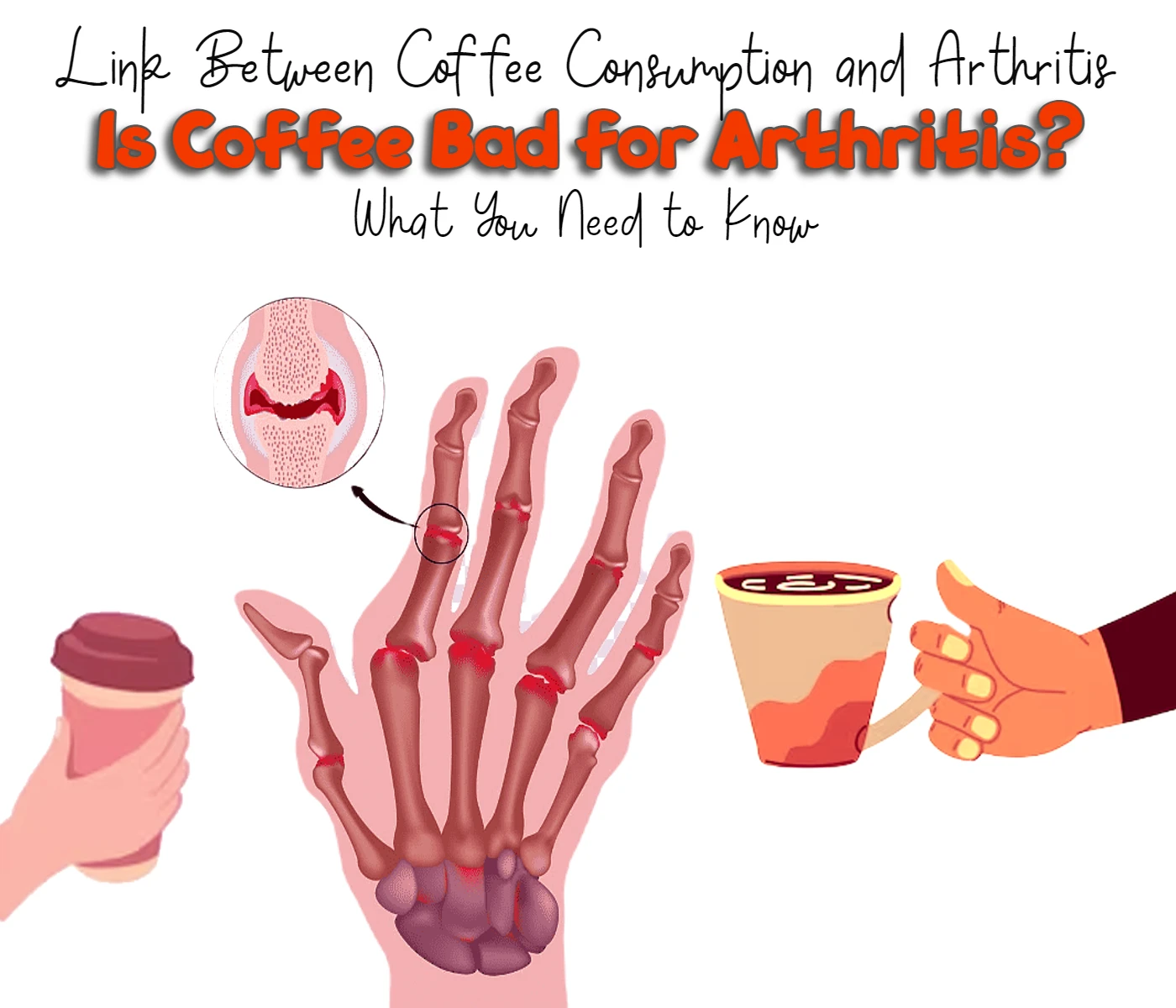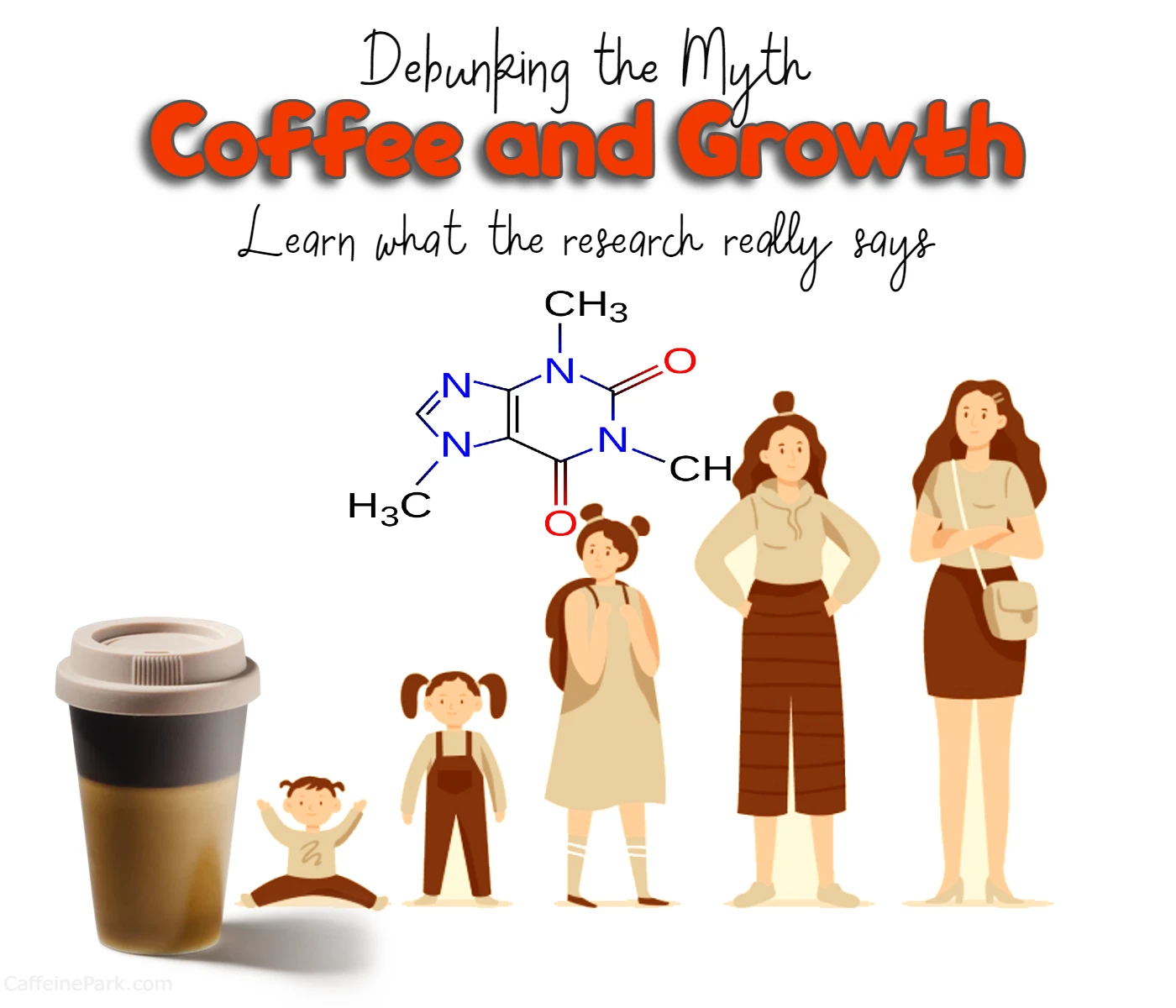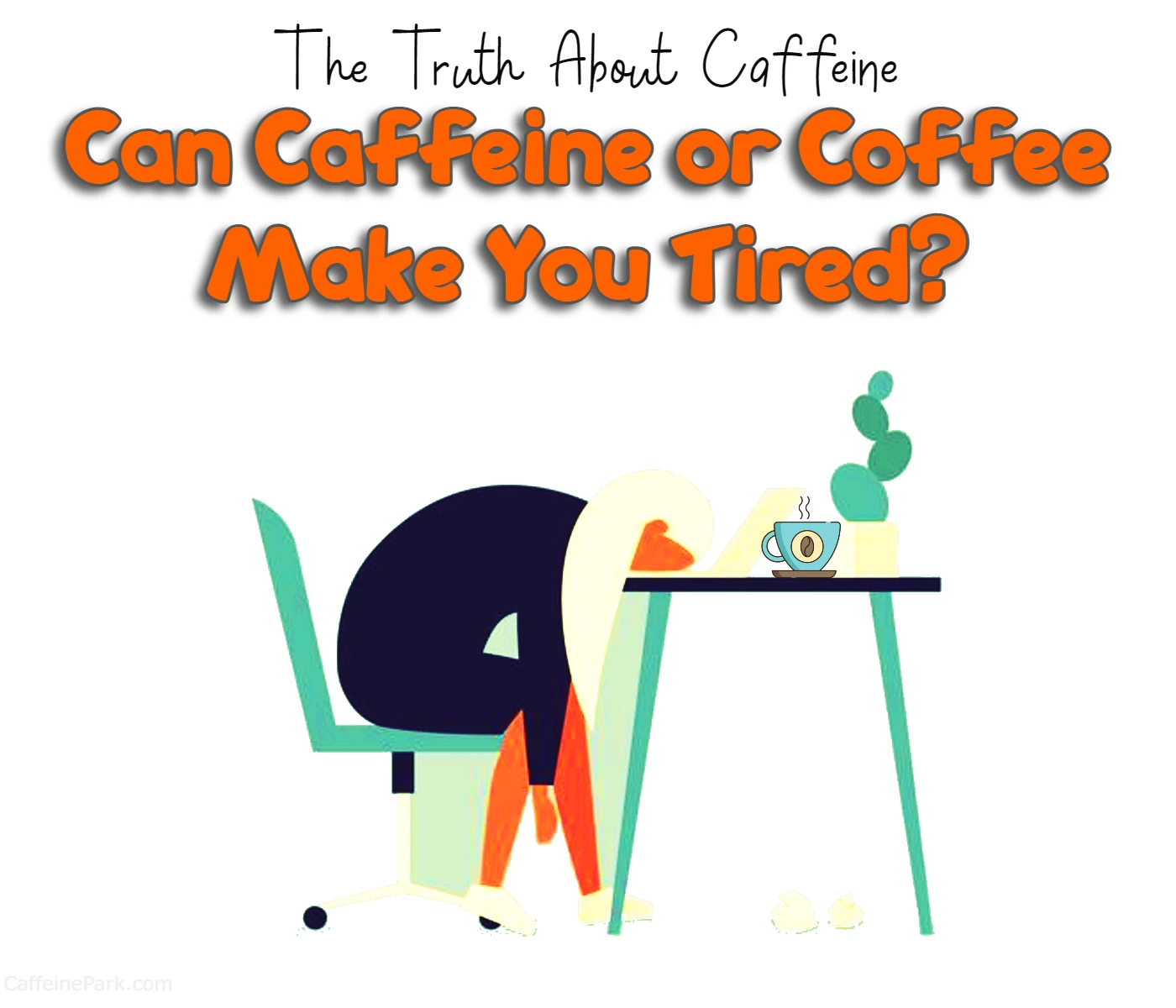Caffeine withdrawal Symptoms
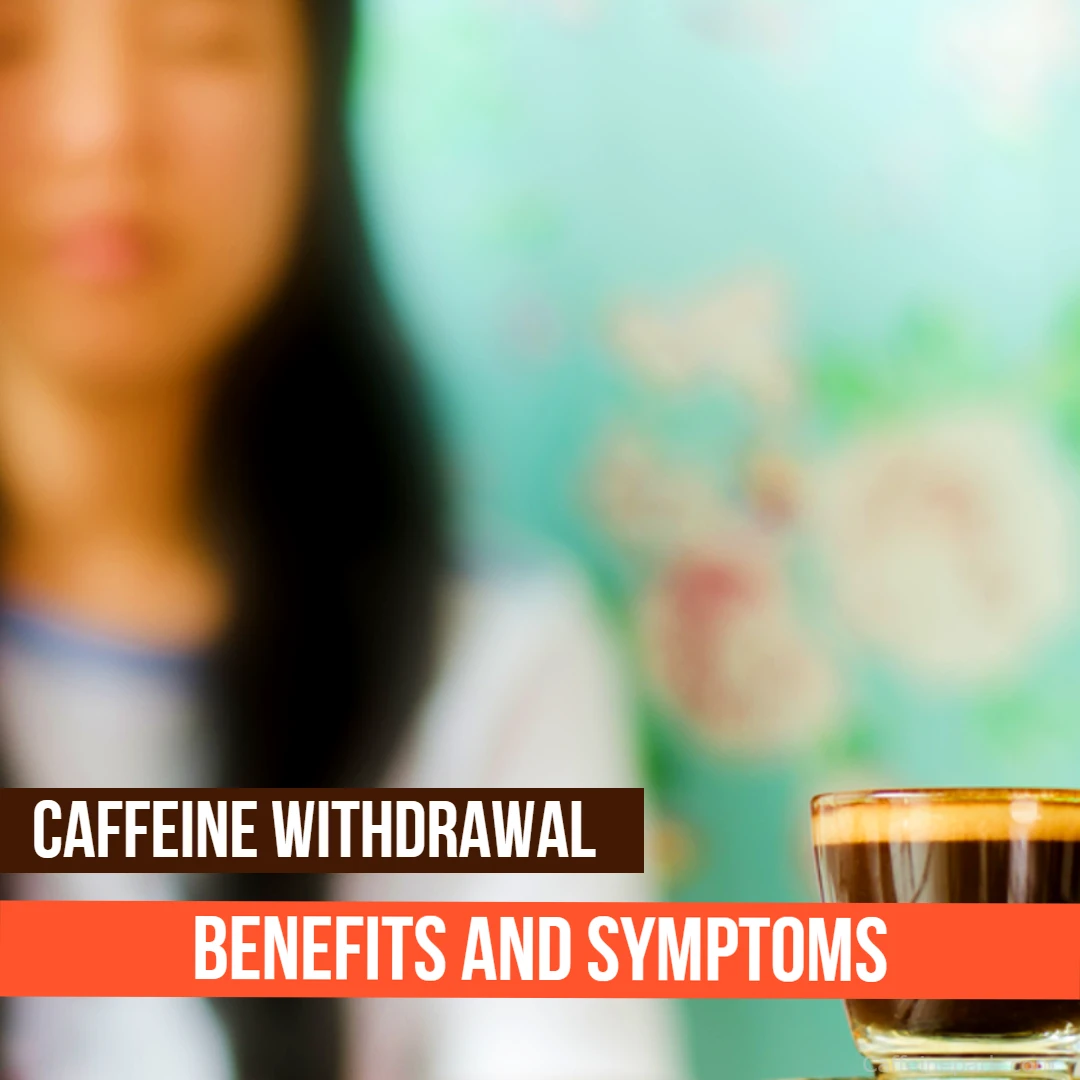
Coffee makes people alert. However, the caffeine in coffee may cause anxiety attacks or migraines. Kola nuts contain an herb called cola nut, which contains caffeine. Caffeine can also be found in cocoa and soda pop. A study showed that 85 percent of Americans consume some sort of caffeine daily. Most consume more than 3 cups of coffee per week, but many drink even more. The highest consumption of caffeine is by older adults over the age of 50.
People sometimes get sick when they stop drinking coffee or other caffeinated beverages. When people feel ill after stopping to drink coffee, they usually call it a case of caffeine withdrawal. While it may seem strange to some, there really is such a thing as withdrawal symptoms.
Caffeine is an addictive drug that makes people feel high, alert, energetic, and more sociable. It’s also bad for you because it causes heart disease, diabetes, migraines, infertility, obesity, anxiety disorders, and depression. You should try to avoid consuming too much caffeine.
What is caffeine withdrawal?
Caffeine withdrawal is a condition that occurs when a person who regularly consumes caffeine suddenly stops or significantly reduces their intake. It is characterized by a group of symptoms that occur as a result of the body’s dependence on caffeine. Caffeine withdrawal is not a substance abuse disorder, and it is not physically dangerous, but it can be unpleasant and disrupt daily life.
What are the symptoms of caffeine withdrawal?
The symptoms of caffeine withdrawal can vary from person to person, but common symptoms include:
- Headache: One of the most common symptoms of caffeine withdrawal is a headache. This can range from a mild, dull headache to a severe, throbbing headache.
- Fatigue: Caffeine is a stimulant that can help people feel more awake and alert. When a person stops consuming caffeine, they may feel tired or fatigued as a result.
- Drowsiness: Along with fatigue, people may feel drowsy or have difficulty staying awake during caffeine withdrawal.
- Difficulty concentrating: Caffeine can improve mental alertness and focus, so people may have difficulty concentrating or remembering things when they stop consuming it.
- Irritability: Caffeine withdrawal can also cause mood changes, such as irritability or anxiety.
- Depression: Some people may experience feelings of sadness or depression during caffeine withdrawal.
- Flu-like symptoms: Some people may also experience symptoms similar to the flu, such as muscle aches and stiffness, nausea, and vomiting.
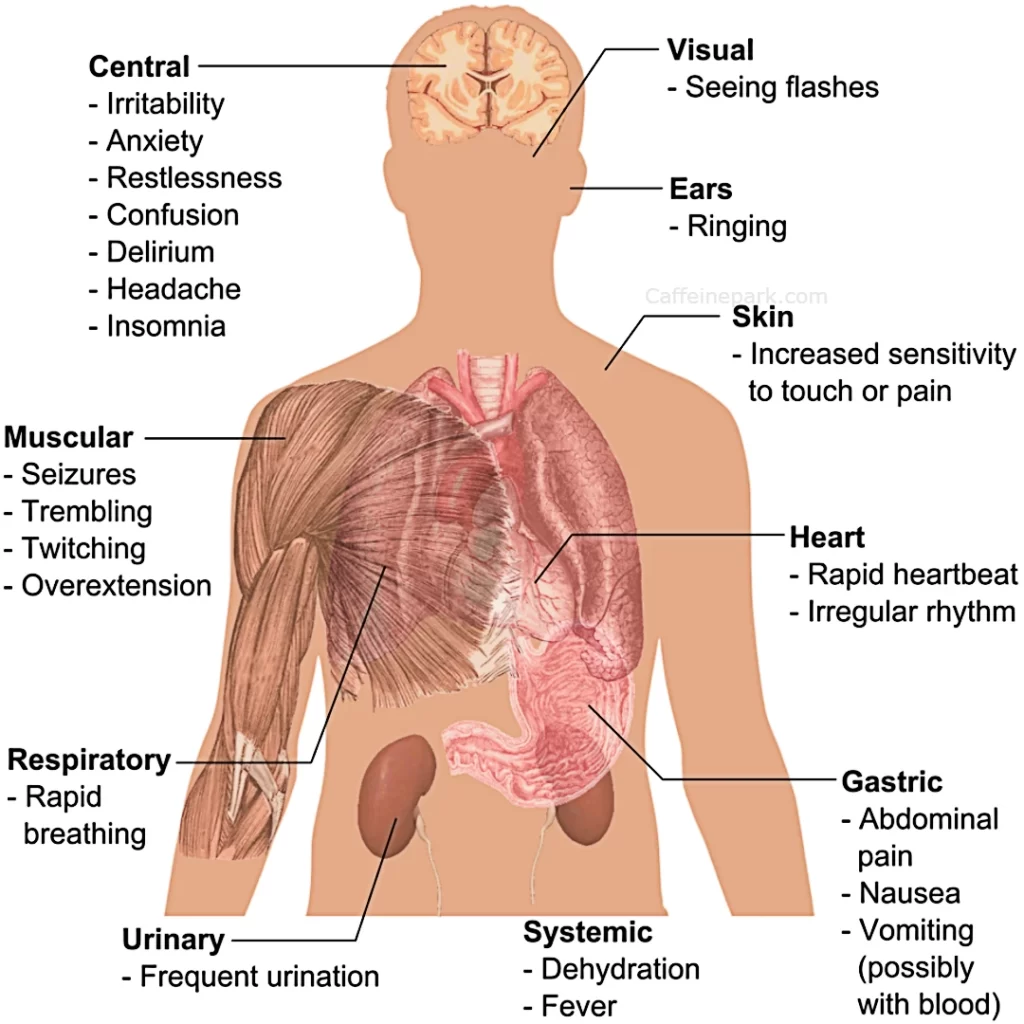
15 Benefits and Symptoms of Caffeine Withdrawal
Caffeine withdrawal symptoms include headaches, irritability, Anxiety, Fatigue, Difficulty Concentrating, Depressed Mood, Low Energy, sweating, tremors, and palpitations.
1. headaches
Headaches are common during caffeine withdrawal because caffeine narrows blood vessels in your head. Your body may also start experiencing headaches when you stop drinking caffeinated beverages.
Caffeine withdrawal headaches sometimes resemble migraines, but this isn’t always true. For example, migraines often come after drinking alcohol or taking certain medications. Therefore, if you experience a headache after stopping caffeine, then your headache might be caused by something else besides caffeine withdrawal.
2. irritability
Caffeine is responsible for crankiness in people who drink coffee regularly. This occurs because caffeine doesn’t stay in your body long enough to give you an energy boost. People who drink too much coffee tend to feel exhausted or anxious afterwards.
For some people, cutting away from heavy amounts of caffeine makes them irritable and moody, but they still want to drink coffee! Caffeine is addictive, so it’s hard to give up without negative side effects. Coffee drinkers should think about how they’re feeling when they get up each morning.
3. Difficulty Concentrating
Caffeine boosts concentration in most people. A person who consumes caffeine may become more alert during a period of time when he needs to be awake but does not need to perform any tasks requiring concentrated attention.
This alertness is useful for those performing activities such as studying or driving. However, caffeine also causes stomach problems in some individuals. In addition, too much caffeine increases heart rate, blood pressure and anxiety levels.
4. Anxiety
Caffeine is a stimulant that causes anxiety when you consume too much of it over time. You should avoid caffeine if you feel anxious or nervous due to it. You should also try to cut down on caffeine intake over time if you want to reduce your anxiety.
5. Fatigue
Many people depend on caffeine every day to get a jump start on the morning or to help them stay awake during long periods of work. Caffeine blocks adenosine receptors, which makes it easier for your body to function normally.
6. Depressed Mood
Caffeine affects your mood differently depending on how much you consume. People who drink coffee regularly might feel happier if they ingest 0.68 mg per kilogram of bodyweight.
Caffeine affects your brain differently depending on how much you drink. When you use too much caffeine, your body gets tired and sleepy. After you stop using coffee or other caffeinated products, your body feels better than before you drank caffeine.
7. Tremors
Caffeine dependence causes people to feel jittery and anxious. Their hands shake when they get out of bed in the morning. Caffeine withdrawal can cause people to shake uncontrollably.

8. Low Energy
Most people who consume caffeine need an energy boost. Caffeine helps them jumpstart their day. Many people also get energized by drinking alcohol or eating junk food.
Energy drinks are popular among those who want to feel more energetic. Coffee is very common at work, but many workers drink too much, causing problems like insomnia and high blood pressure.
Low energy is usually caused by lack of sleep. Caffeine does not cure this problem. People who eliminate caffeine often feel better because they get more restful sleep.
9. palpitations
Caffeine helps give us more energy, but caffeine also triggers our body’s fight or flight response. This leads to more anxiety than the energy boost we get from caffeine intake.
10. Sleepiness
This just isn’t your normal tiredness, this is sitting up straight but still can’t keep your eyes open tiredness.
11. Less Breast Soreness
A link does exist between caffeine and breast pain. Many women seem to experience less breast soreness after cutting down on coffee.
12. Slower Skin Aging
Caffeine is a substance found in coffee beans or tea leaves. When ingested, it speeds up the rate at which the body makes proteins. This results in the formation of wrinkles. Therefore, by removing caffeine from your diet, you can slow down those wrinkles.
13. Better Nutrient Absorption
Caffeine may keep your body from absorbing nutrients from your diet. This makes vitamin supplements necessary to ensure health. If you drink too much coffee, then take a multivitamin supplement each day.
14. Stronger, Whiter Teeth
Coffee, soda, and tea contain acidic substances, which can erode enamel and cause tooth decay. Caffeine dries out your mouth, making it harder to fight off bacterial infections. Your saliva contains antibacterial agents, which means less saliva equals more plaque buildup. These facts explain why coffee drinkers tend to suffer from tooth decay.
15. Fewer Bathroom Breaks
Caffeine acts like a laxative. You need to drink less caffeine if you want to avoid going to the bathroom as much.
How long does caffeine withdrawal last?
The length of caffeine withdrawal can vary from person to person, but most people will start to experience symptoms within 24 to 48 hours after their last caffeine intake. The symptoms typically peak within the first two to three days and then gradually improve over the next week. In most cases, caffeine withdrawal symptoms will resolve completely within one to two weeks.
How to treat caffeine withdrawal
The best way to treat caffeine withdrawal is to slowly reduce caffeine intake over a period of several days or weeks, rather than stopping suddenly. This can help reduce the severity of withdrawal symptoms. It is also important to stay hydrated and get enough sleep during this time.
If withdrawal symptoms are severe or difficult to manage, over-the-counter pain medications, such as acetaminophen or ibuprofen, can help relieve headaches and muscle aches. However, it is important to follow the instructions on the label and not exceed the recommended dosage.
How to prevent caffeine withdrawal
To prevent caffeine withdrawal, it is important to consume caffeine in moderation. The American Heart Association recommends that healthy adults consume no more than 400 milligrams of caffeine per day, which is about four or five cups of coffee. It is also important to be aware of the sources of caffeine in your diet, as some medications, energy drinks, and other products may contain high levels of caffeine.
Coping & Relief From Caffeine Withdrawal
If caffeine is a big part of your daily diet, taking it away can cause headaches, fatigue, drowsiness, depression, and crankiness. People who take caffeine every day usually experience these symptoms within 2-9 days.
- You should start by replacing half of your coffee or tea with decaf. Then gradually switch out caffeine-containing items such as chocolate, soda, and energy drinks.
- Caffeine can cause dehydration and fatigue. You may feel weak if you quit drinking coffee. To avoid these problems, drink lots of water while quitting caffeine. Get enough rest too, because lack of sleep can be as bad as caffeine withdrawal.
- Getting enough sleep is important to combat fatigue due to caffeine withdrawal. We recommend getting the recommended seven to 9 hours of sleep per night.
- Boosting energy naturally is by exercising, eating nutritious food, and reducing stress. Caffeine is bad because it gives you too much energy without providing any nutrients. Exercise builds muscle strength and helps you burn calories. Nutrient rich food is important because it boosts energy, increases metabolism, and improves physical and mental health. Reducing stress helps prevent disease and makes you feel more relaxed.
Who Should Avoid or Limit Caffeine
A good rule of thumb is to avoid drinking coffee after 2 p.m., because it takes effect faster. Women who take birth control have a high risk of developing caffeine-related side effects. People who have a history of liver disease are more likely to suffer adverse reactions to caffeine. And pregnant women should never consume caffeine.
- Pregnant people: Drinking more than 200 milligrams of caffeine per day increases the risk of having a baby born before 37 weeks by 50 percent. A woman drinking three cups of caffeinated coffee per day could increase her chances of miscarrying up to 50 percent.
- Breastfeeding people: Breastfeeding women should consume 200 mg of caffeine per daily because it may not affect their babies. However, if you’re pregnant or nursing, limit consumption to 200 mg per day.
- Kids: Kids should avoid caffeine because of the possible effects on babies and young children. However there is no official FDA rule about this issue. More research needs to be done before a firm recommendation can be made.
FAQs about Caffeine Withdrawal
Can caffeine withdrawal cause long-term health problems?
In most cases, caffeine withdrawal is not dangerous and does not cause long-term health problems. However, it is important to be aware of any underlying health conditions that may be exacerbated by caffeine withdrawal. For example, people with hypertension (high blood pressure) or cardiovascular disease may be more sensitive to the effects of caffeine and may need to be more careful when reducing their intake.
Additionally, it is important to be aware of any other substances or medications that may interact with caffeine. For example, some medications, such as antidepressants or blood pressure medications, can have a stronger effect when combined with caffeine. It is important to speak with a healthcare professional if you are taking any medications and are considering reducing your caffeine intake.
Is caffeine addiction real?
Caffeine is not considered to be a physically addictive substance in the same way that drugs like alcohol or opioids are. However, caffeine can be psychologically addictive, meaning that people may feel a strong desire or craving for caffeine and may experience withdrawal symptoms when they stop or reduce their intake.
While caffeine addiction is not a diagnosable disorder, some people may be more susceptible to caffeine addiction due to their genetics, brain chemistry, or other factors. It is important to be aware of your own caffeine intake and to consume caffeine in moderation to avoid potential negative effects.
Is it healthy to completely stop consuming caffeine?
In general, it is not necessary to completely stop consuming caffeine in order to be healthy. Caffeine can have both positive and negative effects on the body, and the key is to consume it in moderation. However, if you are experiencing negative side effects from caffeine, such as insomnia, anxiety, or digestive issues, or if you are pregnant or have underlying health conditions that may be exacerbated by caffeine, it may be advisable to reduce or eliminate caffeine from your diet.
It is important to speak with a healthcare professional if you are considering stopping or reducing your caffeine intake, as they can provide guidance and support based on your specific needs and health profile.
How can I reduce my caffeine intake?
If you are looking to reduce your caffeine intake, there are a few steps you can take:
- Gradually reduce your intake: Rather than stopping caffeine consumption suddenly, try reducing your intake slowly over a period of several days or weeks. This can help minimize withdrawal symptoms.
- Choose lower-caffeine options: If you are a coffee or tea drinker, try switching to decaf versions or choosing teas that have lower caffeine content.
- Limit caffeine-containing foods and beverages: Be aware of the sources of caffeine in your diet and try to limit your intake of caffeine-containing products, such as coffee, tea, soda, energy drinks, and chocolate.
- Read labels: Be sure to check the labels of any medications or supplements you are taking, as they may contain caffeine.
- Stay hydrated: Caffeine can act as a diuretic, increasing the need to urinate and potentially leading to dehydration. Make sure to drink plenty of water throughout the day to stay hydrated.
By following these steps and being mindful of your caffeine intake, you can reduce your risk of experiencing negative side effects and ensure that you are consuming caffeine in a healthy and balanced way.
Sources:
- Rogers PJ, Heatherley SV, Mullings EL, Smith JE. Faster but not smarter: Effects of caffeine and caffeine withdrawal on alertness and performance.
- Kole J, Barnhill A. Caffeine content labeling: A missed opportunity for promoting personal and public health.
- Alstadhaug KB, Andreou AP. Caffeine and primary (migraine) headaches—friend or foe?.
- MedlinePlus. Migraines.
- Evatt DP, Juliano LM, Griffiths RR. A brief manualized treatment for problematic caffeine use: A randomized control trial.
- Mills L, Boakes RA, Colagiuri B. Placebo caffeine reduces withdrawal in abstinent coffee drinkers.
- Johns Hopkins Medicine. 5 foods to avoid if you have IBS.
- MedlinePlus. Caffeine in the diet.
- Temple JL, Bernard C, Lipshultz SE, Czachor JD, Westphal JA, Mestre MA. The safety of ingested caffeine: A comprehensive review.
- MedlinePlus. Caffeine.
- Food and Drug Administration. Spilling the beans: How much caffeine is too much?.
- The American College of Obstetrics and Gynecologists. How much coffee can I drink while I’m pregnant?.
- The American College of Obstetrics and Gynecologists. FAQs: Breastfeeding your baby.
- Schneider MB, Benjamin HJ, Committee on Nutrition and the Council on Sports Medicine and Fitness. Sports drinks and energy drinks for children and adolescents: Are they appropriate?.
Read More:

